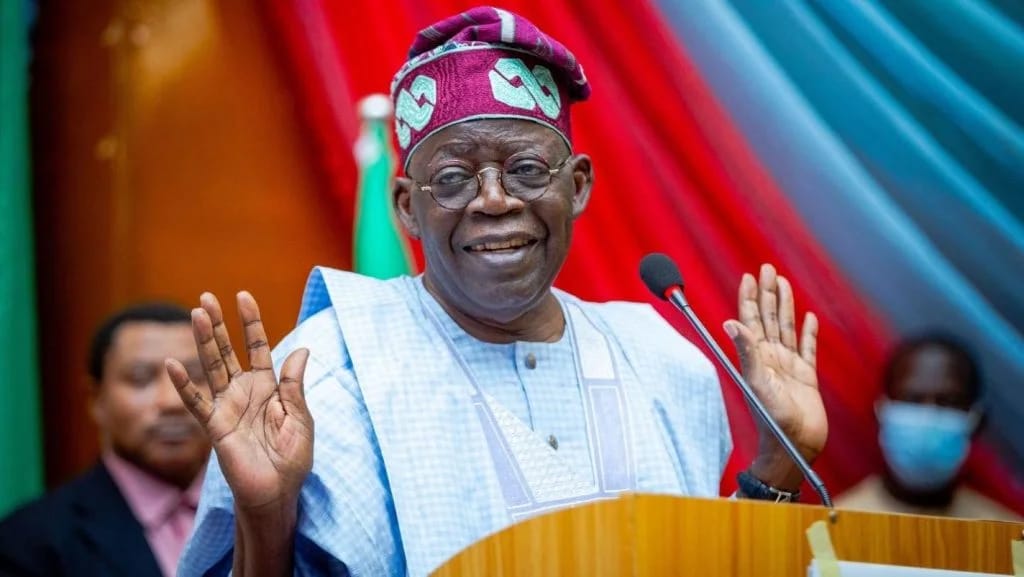News
Nigeria can’t continue in path of rising debts – Experts counter Tinubu

Economic experts have said Nigeria cannot continue on the path of indebtedness amid incompetence and inefficiency.
The economic analysts were reacting to the All Progressives Party, APC, presidential candidate, Bola Ahmed Tinubu’s recent comment on Nigeria’s 2023 appropriation bill.
Recall that Tinubu remarked in his interaction with business stakeholders, in Lagos, that budget deficits are not necessarily bad.
However, Nigeria’s rising debt profile has been a source of apprehension for many economists and ordinary Nigerians.
Certainly, for a country struggling on all fronts, a N77 trillion debt if the National Assembly approves President Muhammadu Buhari’s 23.7 trillion Ways and Means advance, according to the Debt Management Office, DMO recent statement, should raise dust.
With the country’s dwindling revenue portfolio and overbearing debt repayment burden, the fear continues to escalate.
In perspective, a breakdown of this year’s appropriation bill with N21.51 trillion expenditures and expected revenue of N9.73 trillion, shows that a whooping N6.31 trillion representing over 70 per cent of its aggregated revenue would be gulped by debt servicing and shooting up the country’s budget deficit to N10.78 trillion.
In plain economics, Nigeria’s debt situation does not look good.
Reacting to the development in a chat with Track News, a financial inclusion/wealth management expert, Mr Idakolo Gbolade said budget deficit financing cannot translate to economic growth in Nigeria.
He stated that the budget deficit is causing Nigeria double digit inflation and depreciation of naira.
He added that historically, the budget deficit has not been productive because some of the projects financed by it are not economically viable. He cited Nigeria railway currently crippled by insecurity as an example.
“Budget deficit financing cannot translate to economic growth in Nigeria because deficit financing has led to double digit inflation with the country also battling chronic food inflation.
“The deficit financing has consistently weakened the Naira and has led rating agencies to downgrade Nigeria’s credit rating, thereby affecting flow of investment opportunities and ability of the private sector to source funding from foreign institutions
-

 News6 days ago
News6 days agoThere Is No Worker In Level 1 Step 1 Today In Nigeria, We Only Have Workers From Level 4 – Joe Ajaero
-

 Politics6 days ago
Politics6 days agoJUST-IN: Reinstated Edo State Deputy Governor, Philip Shaibu Kneels For Oshiomhole After Dumping PDP For APC
-

 Niger Delta6 days ago
Niger Delta6 days agoEx-Niger Delta Militant Hails Tinubu’s Reforms, Seeks Intensified Security Of Oil Installations
-

 News4 days ago
News4 days agoNYSC Member Allegedly Impregnates 5 Secondary School Students in Sokoto
-

 Business4 days ago
Business4 days agoUPDATE: How NNPC Spent N7.3Billion On Entertainment In 16 Months NNPCL GMD, Mele Kyari
-

 Sports6 days ago
Sports6 days agoChelsea offered TWO elite strikers as Victor Osimhen ‘agrees’ transfer
-

 News4 days ago
News4 days agoPolice Sergeant Shoots Father Dead After Drinking To Stupor
-

 Crime4 days ago
Crime4 days ago‘How Lagos woman allegedly defrauded Ogboni leader of N6.3m with fake twins claim




